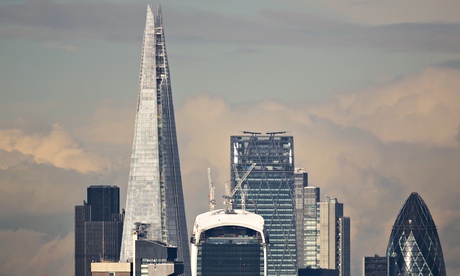No child dreams of growing up to become a pharmacist. They are
never romantic leads or action heroes in films. As far as a search of my
bookshelves and the web can tell, they are not the heroes and heroines
of novels either. Doctors, detectives and spies are everywhere, while
the ignored pharmacist is nowhere to be seen.
To become a chemist
is to choose a comfortable existence. At Boots they make around £38,000
on average. This money buys the kind of life the rich and the bohemian
have always derided: the semi in suburbia with the spare room for the
children; the annual holiday and the car on HP. It can sound dull until
hard times fall on you or your society and you learn that ordinary
achievements are not to be derided.
I wasn't surprised to learn
that almost a fifth of pharmacists are Asian. It's a good career for
second generation immigrants. Your parents work hard in a menial job or
at a shop that's open all hours so that you can have better. You go to
university and choose to study a subject that will bring you a secure
middle-class future. Maybe a slightly dull future, but as your parents
will tell you, there are worse fates than being bored occasionally.
The
politicians chant that if you "work hard and play by the rules," they
will respect you. But respect and security is hard to find in modern
Britain even for such respectable people as pharmacists.
In 2007, Boots, once a solid Nottingham retailer, was bought by
Kohlberg Kravis Roberts.
The American private equity firm specialises in borrowing money to take
over established firms, and then sweats the assets and restructures the
firm to pay off the debt and take the profits.
Wall Street
journalists of the 1980s called KKR "the barbarians at the gate" .
Others called them worse. No one has ever said that they were dull. In
2012
KKR and their partners
more than trebled their original investment of around £1bn after
selling 45% of their holding for £4.3bn. They sold out to and cashed in
with the American health chain, Walgreens. It doesn't appear to like
trade unions
or to want to deal with them. More to the point it has an option to
further enrich the "barbarians" of KKR by buying its remaining stake in
Boots.,
Profit-taking on this scale has economic consequences
which are all around us. Because corporations sit on piles of money, and
direct profits to executives and shareholders, the balance between
labour and capital is out of joint. Profits don't lead to higher wages
or new jobs in developed countries, where in the words of the
International Labour organisation,
"Almost everywhere, young people and women find it difficult to obtain
jobs that match their skills and aspirations." Falling real wages and
persistently high unemployment mean that economic recovery is fuelled by
yet more debt and may sputter out, as even George Osborne fears.
Less
examined are the intellectual consequences of the power imbalance. The
notion that employers exploit workers has a precarious place when
established society hails the executive or the dealmaker as the real
wealth creator. Workers do not create, so they cannot be exploited. They
are cost centres to be squeezed, when they are not being patronised.
If
this sounds like radical language, consider the position of an upright
group of men and women. Boots' private equity owners are so jealous of
their profits and contemptuous, arguably, of their workforce that
pharmacists must seek a change in the very laws of the land to get the
bosses to talk to them.
In 2012, the Pharmaceutical Defence
Association asked Boots if it would recognise it as a trade union. This
was a mild demand, indeed no demand at all. We still have free trade
unions in this country and rights to association are still regarded as
fundamental liberties, although you would be forgiven for not knowing
it. Pharmacists need them as much as everyone else. They are caught in a
trap, which is closing on many middle-class people.
On the one
hand, the law treats them as professionals who are personally liable for
mistakes in prescriptions and diagnoses. If a patient is given the
wrong medicine and suffers, it is their responsibility. On the other,
the conglomerates who employ them treat them as staff, "proletarians,"
if I may use old-fashioned language, who must obey orders, even though
if a mistake happens because the corporation has not given pharmacists
the backup they need, the pharmacist rather than conglomerate pays the
price.
Boots strung the Pharmaceutical Defence
Association along, then pulled a trick on it. Rather than recognise the
independent trade union, it said it would deal with a Boots staff
association instead. John Murphy, the general secretary of the rejected
union and a former Boots chemist,
said that the staff association didn't challenge the employer or seek to negotiate or bargain collectively.
The
adjudicators of the Central Arbitration Committee, an independent body
which settles disputes, did not bite their tongues. Boots "had no
intention of recognising the union," they said. It stalled so it could
arrange a deal with the staff association. As a result there was no
real union at Boots which had "collective bargaining rights for at least
pay, hours and holidays", it continued, and this omission left the
private equity capitalists in breach of the European Convention on Human
Rights.
Boots went to the courts to challenge the decision. The
courts said Boots did not have to recognise the Pharmaceutical Defence
Association under English law but told the union that English law could
well be incompatible with the European Convention.
The judge
invited the union to go to another court to seek a "declaration of
incompatibility". If a fresh judge makes a declaration, then the
government must consider legislating to make English law and human
rights law compatible. All this just so pharmacists can have the right
to raise legitimate concerns with their vastly rich and proud employers.
The
crisis that the soaring growth of inequalities of wealth and power has
brought can be glimpsed everywhere. You can see it in the inability of
the young to afford an ordinary house in an ordinary street. You can see
it in the vast levels of debt weighing down on ordinary working- and
middle-class families, and you can see it at the Boots pharmaceutical
counter, where chemists are treated like red revolutionaries just for
wanting to negotiate with their employer as free men and women.



